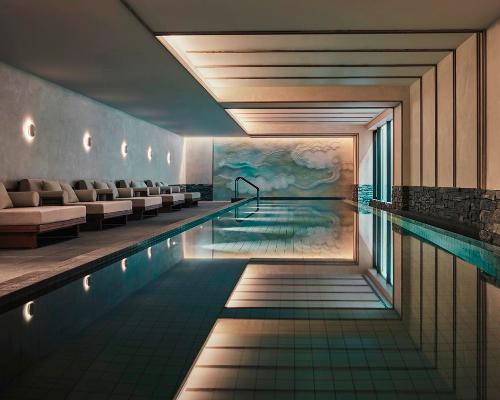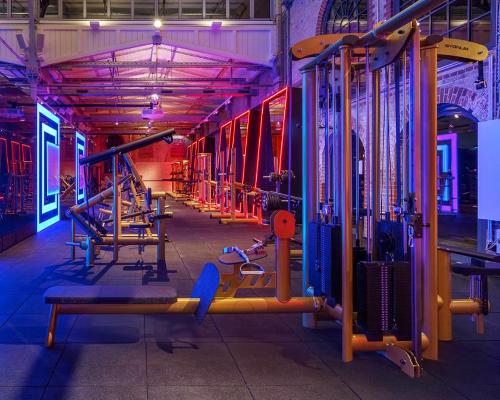see all jobs
BHA says ‘no’ to Bed Tax
The British Hospitality Association (BHA) has presented evidence to an inquiry into local authority funding and has opposed the possible introduction of a Tourism (or Bed) Tax.
The evidence, published in full for the first time below, strongly contests any suggestion of introducing a tax on occupation of guest accommodation.
The report also draws attention to the impact of the London congestion charge on restaurants.
BHA chief executive Bob Cotton and deputy chief executive Martin Couchman met Sir Michael Lyons in February this year at the outset of the Inquiry, and subsequently submitted the written evidence below.
The inquiry relates mainly to England and Wales, and a similar exercise is taking place in Scotland.
A preliminary report from the Lyons Inquiry is expected soon, with a full report to be published later in the year.
A full transcript of the evidence follows.
SUBMISSION TO THE LYONS INQUIRY
April 2005
TOURISM TAX
The British Hospitality Association is the national association for the hotel, restaurant and catering industry. Our 40,000 member establishments include some 9000 hotels, ranging from independently operated properties to those run by the major chains.
This submission to the Inquiry concentrates on suggestions that a tourism tax should be one of the fund raising instruments available to local authorities. It has been assumed in literature from the earlier Balance of Funding review that a tourism tax would, in effect, be a tax on occupation of guest accommodation- a “bed tax”- and this submission follows that assumption. Apart from the tax on passengers on the Great Barrier Reef (Balance of Funding paper 26), we are certainly not aware of any tourism tax in any country which was not a tax specifically on accommodation.
We would oppose a bed tax for a number of reasons:
First, while one can follow the “polluter pays” logic of taxing visitors to an area who do not otherwise directly contribute tax revenues to the local authority, it seems unfair to impose the tax just on overnight visitors. Under a third of tourism spending in the UK is on accommodation (source: International Passenger Survey; United Kingdom Tourism Survey).
Second, it seems inequitable to impose a bed tax on the less than 40 per cent of overnight accommodation stays which are in hotels, motels, guesthouses and bed and breakfast, and not on the greater number of stays in rented houses, second homes, timeshare, camping and towed caravans and stays with friends and relatives. It has to be assumed that stays in the latter categories would not be capable of practical inclusion within a bed tax.
Third, a bed tax at the level suggested in Balance of Funding paper 23 (5 per cent, presumably on the accommodation price excluding VAT) would add considerably to the effective tax rate already paid on accommodation through VAT.
Since it is likely that the Treasury would expect the bed tax itself to be subject to VAT, a hotel stay at the average UK regional room rate (2003- source: Deloitte & Touche) of £60.00 excluding VAT, i.e. £70.50 including £10.50 VAT at 17.5 per cent, would become £74.02, including £14.02 total of bed tax (£3.00 at 5 per cent of £60) and VAT (£11.02 at 17.5 per cent of £63), giving an overall tax rate of 23.36 per cent. To take a family of four for one week to a hotel charging this average rate would add nearly £100 to the bill in bed tax and additional VAT.
The UK already has a price competitiveness problem over the level of taxation of overseas visitors. Research for the British Tourist Authority (now VisitBritain) suggested that a typical family of 4 coming on holiday from the USA would, in the UK, spend £1797, made up of £1466 (of which £583 on accommodation) plus taxes of £331(22.5 per cent add on), but, in France, would spend £1590, i.e. £1375 plus taxes of £215 (15.6 per cent add on).
Adding Bed Tax and the additional VAT to the £583 UK accommodation element would add £34 to the total cost and take the tax add on up to about 25 per cent. Denmark has the highest VAT rate on accommodation in the EU at 25 per cent: bringing the UK in effect up to the Danish level of taxation could seriously damage the industry.
The LGA has itself noted research at Nottingham University that a 1 per cent increase in prices relative to other countries leads to a 1 per cent decrease in international tourism, possibly more for domestic tourists. Research for the British Tourist Authority gave a higher (1.4:1) loss ratio for international tourism. Applying the Nottingham University research to the example above would suggest that a bed tax applied across the UK could reduce international tourism revenues by about £220 million [effect of 5 per cent cost increase applied across the one third accommodation element of total expenditure of £13 billion] and domestic tourism revenues by around £325 million [effect of 5 per cent cost increase applied across the one quarter accommodation element of total expenditure of £26 billion].
With taxation at around 40 per cent of GDP, a £550 million annual loss of tourism revenues would cost the Exchequer over £200 million in lost taxation, with close to £100 million of this lost on international tourism and therefore totally irrecoverable.
Fourth, the possibility that the imposition of a bed tax would instead be a matter for each local authority, over which hotel businesses had no democratic influence, would seem both wrong and, given the prospect of boundary anomalies, potentially damaging to those affected.
Finally, there is an issue about the cost of collection, which would rise very sharply in smaller establishments. The average hotel has only 10 bedrooms. In addition to the paperwork involved, the inspection regime would be costly in relation to the likely return. Excluding properties on a de minimis basis would be unfair to larger properties.
Given the above, we hope that proposals for a bed tax will not receive the support of the Inquiry.
I can confirm that we have no objection to this submission being made publicly available.
More News
- News by sector (all)
- All news
- Fitness
- Personal trainer
- Sport
- Spa
- Swimming
- Hospitality
- Entertainment & Gaming
- Commercial Leisure
- Property
- Architecture
- Design
- Tourism
- Travel
- Attractions
- Theme & Water Parks
- Arts & Culture
- Heritage & Museums
- Parks & Countryside
- Sales & Marketing
- Public Sector
- Training
- People
- Executive
- Apprenticeships
- Suppliers











































